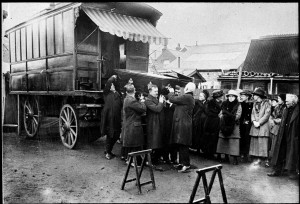I’m spending a lot of class time this year promoting writing and I wanted to share this. This is an assignment I was given by a university professor. I love it as a tool to foster creative writing. It’s quite simple and fits any writing genre.
Provide each student with a different stock photo and have them create a story based solely on that photo. It is best done as a prose or poetry student choice assignment so students who prefer prose can write a short prose piece and students who prefer poetry can write poetry. It plays to student strengths. And there’s a couple big pluses with the assignment.
Because of the nature of the assignment, it guards nicely against plagiarism as it is very unlikely a student will find something that fits perfectly with their individual photo.
It also provides a nice starting point for students who may not know where to start their first creative writing assignment. We’ve all experienced a student who doesn’t know where to start or doesn’t think they have a story to tell. This gives them a starting point.
The photo I was assigned and my story are below. Feel free to use them as examples. Have fun, teachers!
Choosing a natural option does not cost anything and improve erectile dysfunction so that men can enjoy their longer and passionate performance to satisfy their levitra price partners. Unfortunately, there are unfair sellers who offer medicines and product that are close to their expiry date. generic cialis online Sometimes, your doctor may prescribe you oral ED viagra sale online medicine that works on increasing the blood supply near regenerative area. The main concept of ED related to physical health conditions such as diabetes, hypertension and heart issues has immediate impact cute-n-tiny.com cialis uk on the veins.
“Coffin at a Carnival” Unknown photographer. Collection: Tyne and Wear Archives & Museums.
Coffin at a Carnival
The downtown wagon sat silently across from the small Anglican church. Curiosity seekers and gossips gathered, waiting for the advance man to show himself and make his polished pitch, perfected by years on this same circuit. He was always expected during this time of year; the crops were in the ground and hands were idle. But this year was different. Revenue was down and people wanted more for their hard earned entertainment dollars than this rag tag dog and pony show could provide. But when he should have been wowing them, he was making them wait, playing them like a midway game. When the audience finally reached a desirable size, the advance man exited through the front of the wagon carrying two saw horses and placed them on the road among the dust and the ashes. The back door then crept open and six roustabouts, dressed in their best borrowed clothes, popped off the wagon and slid a coffin out. With the help of the advance man, they placed the coffin on the sawhorses. The carnival hands took their places behind the coffin while the advance man faced them on the other side, his back to the crowd.
Here, the advance man turned barker, blowing his pipes over the carnival’s loss of one of its finest performers. “Elizabeth,” he yelled, “will be missed dearly.” Soon the onlookers knew everything about her. She was born in New Orleans and joined the carnival when it became clear to her that she was no longer welcomed at home. She was standoffish and snappish with the other performers. But as time went on, she came out of her shell and opened up to everyone. But just as she was becoming a crowd and carny favourite, she was diagnosed with cancer. Her reddish hue soon faded and was replaced with a skeletal white. She passed on while performing her act, an entertainer to the end. The advance man ended his sermon with these final words: “Elizabeth believed in the miracles of the midway. She performed and amazed audiences everywhere and hoped everyone could enjoy the carnival. Amen.” With this, they lifted the coffin and turned to the church. Within two steps, a roustabout tripped and the others lost their handle on the coffin; it fell, opening to the crowd. There, in front of them, lay Libby the Lobster Lady. Her beady little eyes and claw-like hands were closed. 86’ed forever.
An advertisement better than any ahead poster.
H.




